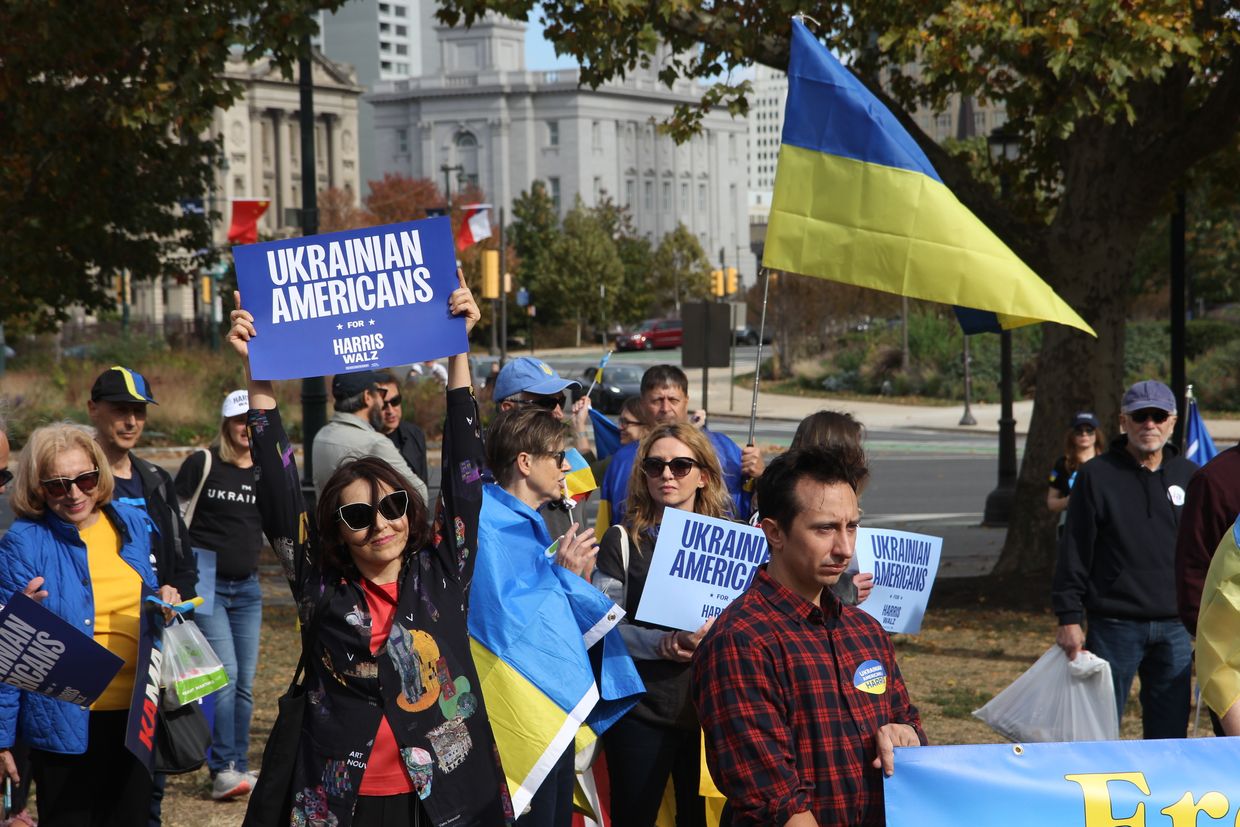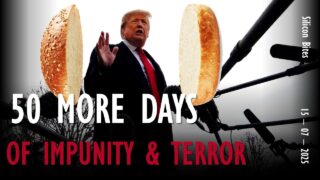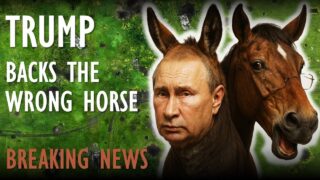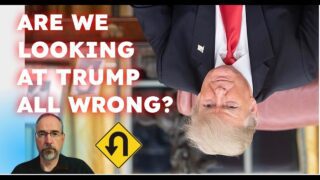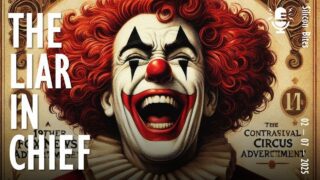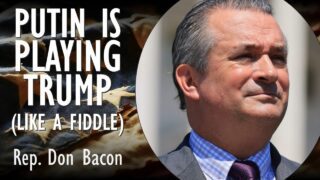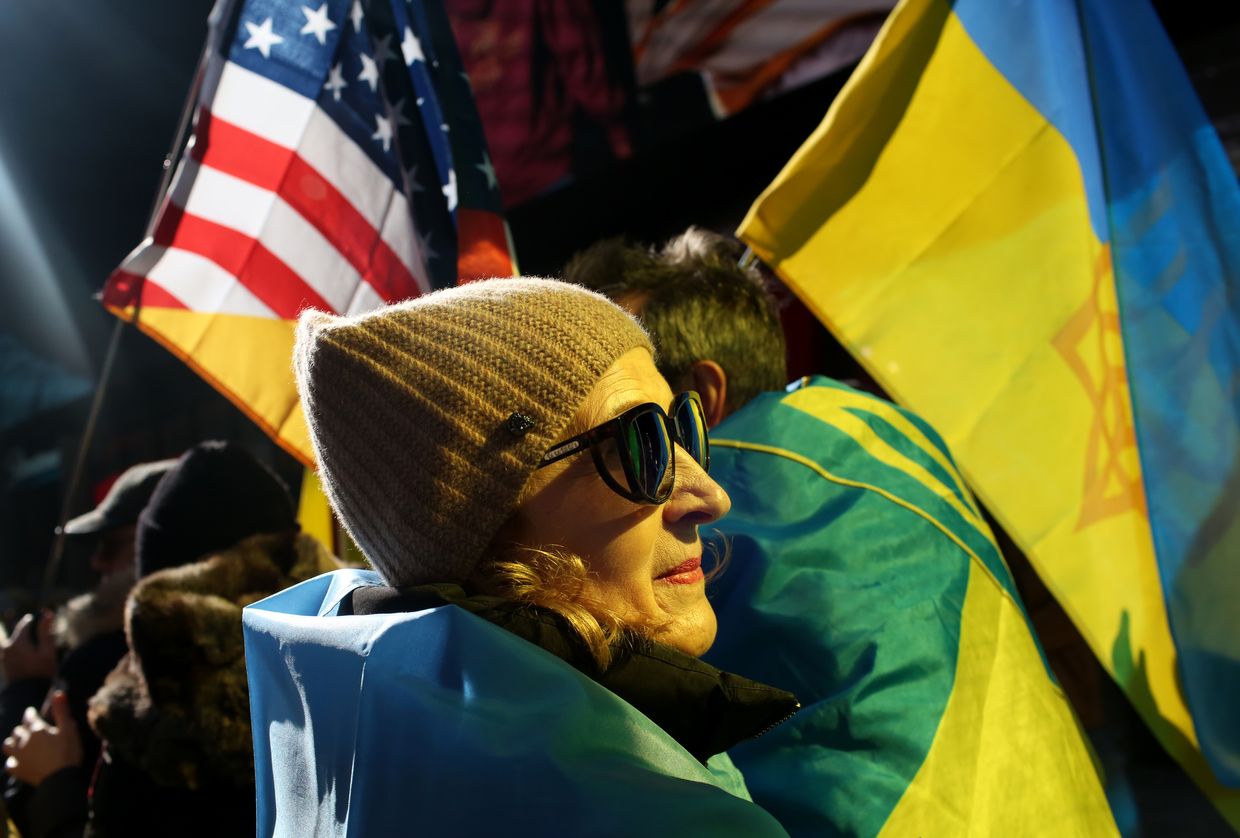
Ukrainians in the US weigh in on upcoming Trump vs Harris election
Democratic candidate Kamala Harris’s campaign promises to continue supporting Ukraine in its fight against Russia would seemingly make her the obvious choice for Ukrainians in the U.S. in the 2024 presidential elections, but the diaspora is anything but united in their choice for president.
Despite Republican candidate Donald Trump’s open hostility to aid for Ukraine and apparent close relations with Russian President Vladimir Putin, some Ukrainian American voters feel he’s the one who could end the war swiftly.
“If there is any president who would be able to get Putin to negotiate a deal that Putin would agree with because he can go back to his people and say he’s a winner but leave most of Ukraine intact, I think it’s Trump,” Ukrainian American Dennis Goldenberg told the Kyiv Independent.
As voters head to the polls on Nov. 5 in a presidential election that is predicted to be decided on razor-thin margins, many voting Ukrainian Americans will be doing so with the war in mind, but with competing visions of which president could better serve Ukraine.
Ukrainians in the U.S. who can’t vote are watching the election with the hopes that their would-be pick for president will be the one to bring peace to the nation at war.
In the run-up to the election, the Kyiv Independent asked Ukrainians in the U.S. who can and can’t vote about the outcome they’d most like to see.
Eugene Luciw
In Pennsylvania, a crucial swing state with 19 Electoral College votes that likely provides a path to victory for either presidential candidate, the Philadelphia area is home to one of America’s largest Ukrainian communities.
Eugene Luciw, president of the Ukrainian Congress Committee of America’s Philadelphia Branch says that as a resident of the area, he knows Ukrainian Americans across the political spectrum.
He says it’s not surprising that many Ukrainians will vote for Trump, but emotionally, it’s a bit surprising. As a registered Republican, he’s familiar with the argument Ukrainian Americans make for Trump.
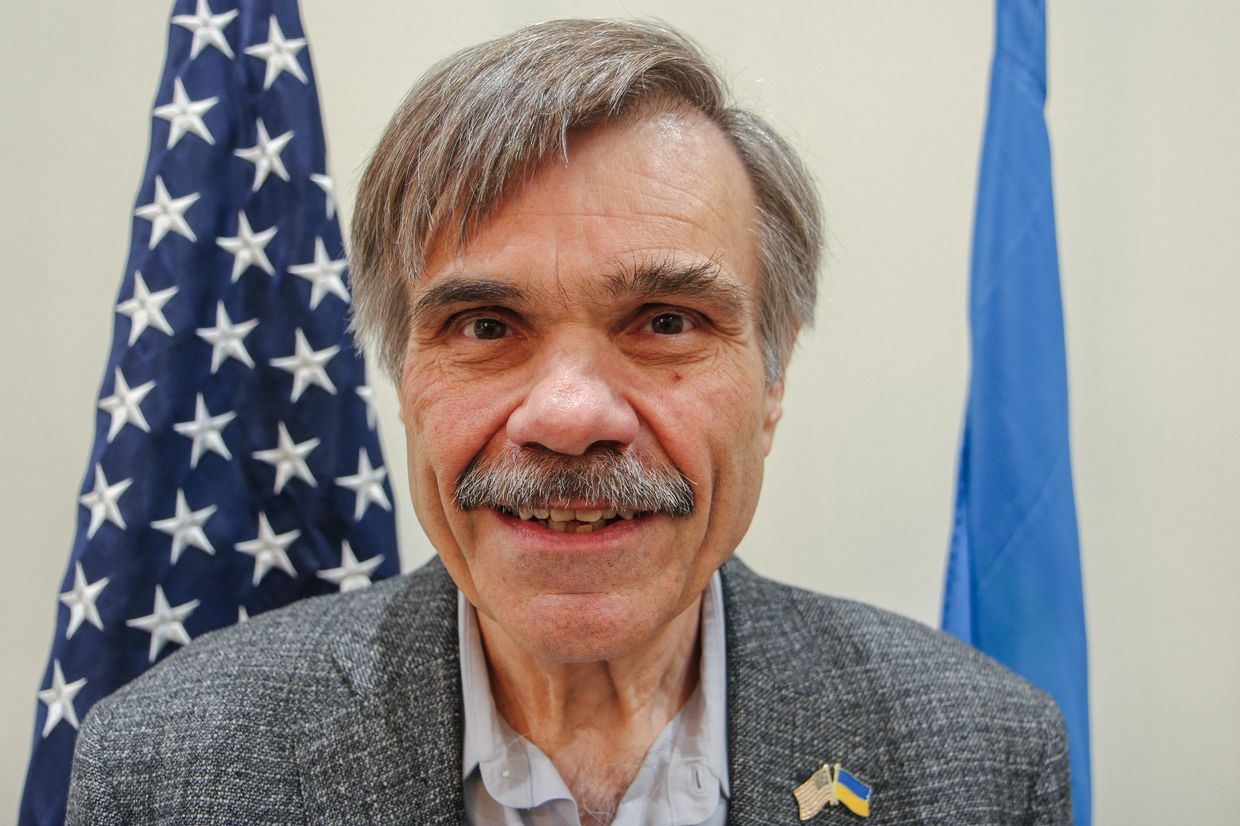
The case – with which he doesn’t agree — they make goes as follows: Russia illegally annexed Crimea while the U.S. was under a Democratic administration, then under Trump’s four years, Russia didn’t invade Ukraine only to launch a full-scale invasion once a Democrat was back in the White House.
“They see a pattern of weakness (with Democrats), a pattern of strength (with Republicans), and I think that translates into a hope and belief that Trump, if elected president, will provide that strong man motif.”
They believe Trump will respond strongly and back down the adversary despite what he says on the trail," he says.
“I believe Trump (when) he says he is going to try and resolve the (war) in one day, and the fact that he will resolve it in one day, the only way you’re going to do that is to force Ukraine to give up its current territory,” Luciw says.
“I think that’s abundantly stupid for Ukraine. I am going to cast my vote for Vice President Kamala Harris.”
Dennis Goldenberg
Goldberg has never doubted his decision to vote for Trump on Nov. 5.
For the Ukrainian American from Philadelphia, the best election outcome for Ukraine is a powerful U.S. leader, which he says he sees more in Trump than in Harris.
“I think his view on this war matches mine, which is that, ultimately, I fear that if the war continues, it’s going to get bogged down in a stalemate. I think (Trump) understands a little bit better how Putin operates,” Goldberg says.
“If there is any president who would be able to get Putin to negotiate a deal that Putin would agree with because he can go back to his people and say he’s a winner but leave most of Ukraine intact, I think it’s Trump.”
It isn’t just the war in Ukraine that Goldberg is voting on. He supports Trump’s proposed tax cuts and thinks he put the Middle East closer to peace than any president. He also supports the building of a wall on the U.S. southern border with Mexico to stymie illegal immigration.
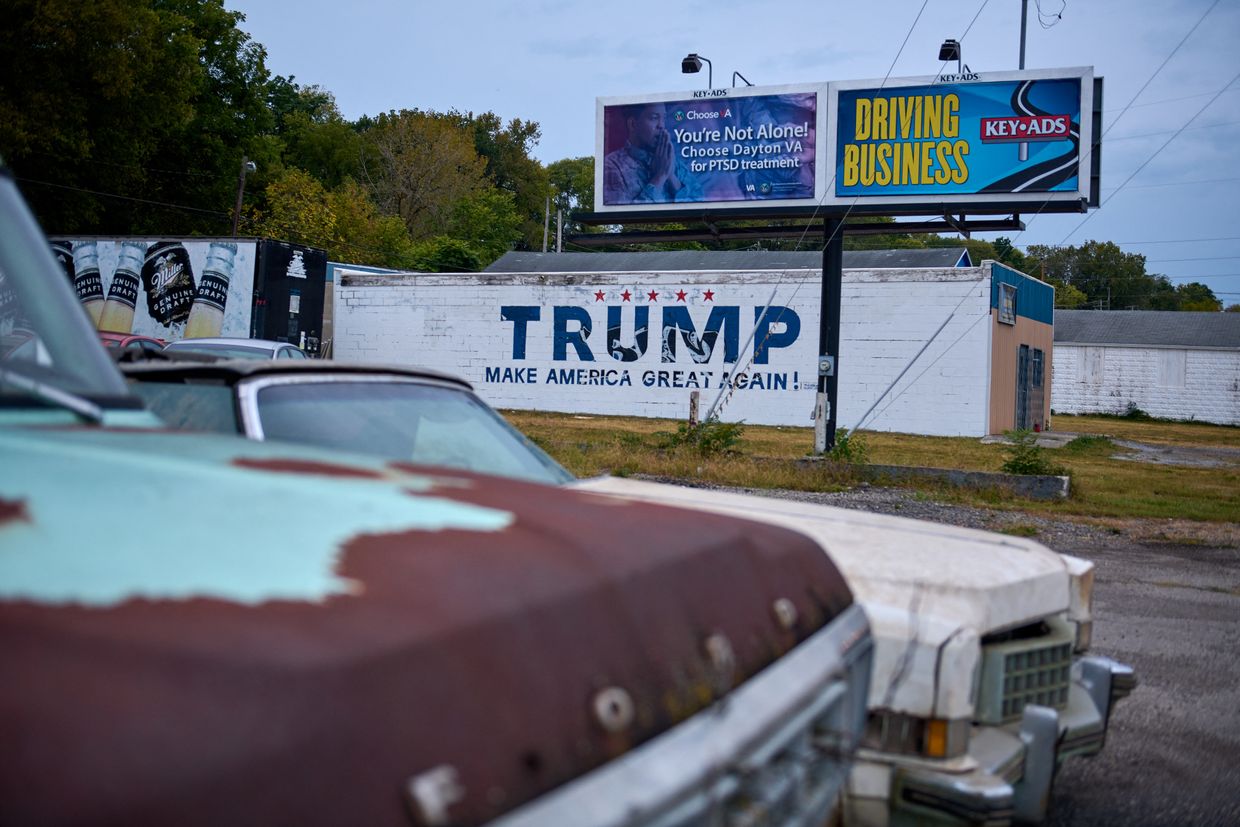

Half of Goldberg’s family is from Moldova, and the other half is from Kamianets-Podilskyi, in the west of Ukraine.
Goldberg says he believes in Trump’s alleged ability to end the war within 24 hours of taking office.
“I kind of do get that he doesn’t want to say how he is going to do it because then he loses leverage because once you tell your plan, your enemy knows your plan.”
Goldberg told the Kyiv Independent that he thinks Trump will be best for Ukraine because he’s been the only president of the last four under which Russia hasn’t taken more territory.
Putin illegally annexed Crimea and invaded Ukraine's east during the term of Trump’s predecessor, President Barack Obama, and invaded Georgia under the last Republican administration before Trump during President George W. Bush’s term.
Anton Tatus
Days out from the election, Tatus shares the mindset of America’s undecided that both campaigns have spent millions of dollars and traveled thousands of miles across the country trying to reach.
The 22-year-old Manhattan banker and Ukrainian citizen is not only undecided about who he hopes wins on Nov. 5, but he’s also limited in his power to make an impact. He can’t vote.
After completing four years of undergraduate studies in the U.S., the Kyiv-born numbers cruncher isn’t convinced his long-term future is in the U.S., so he hasn’t bothered with citizenship.
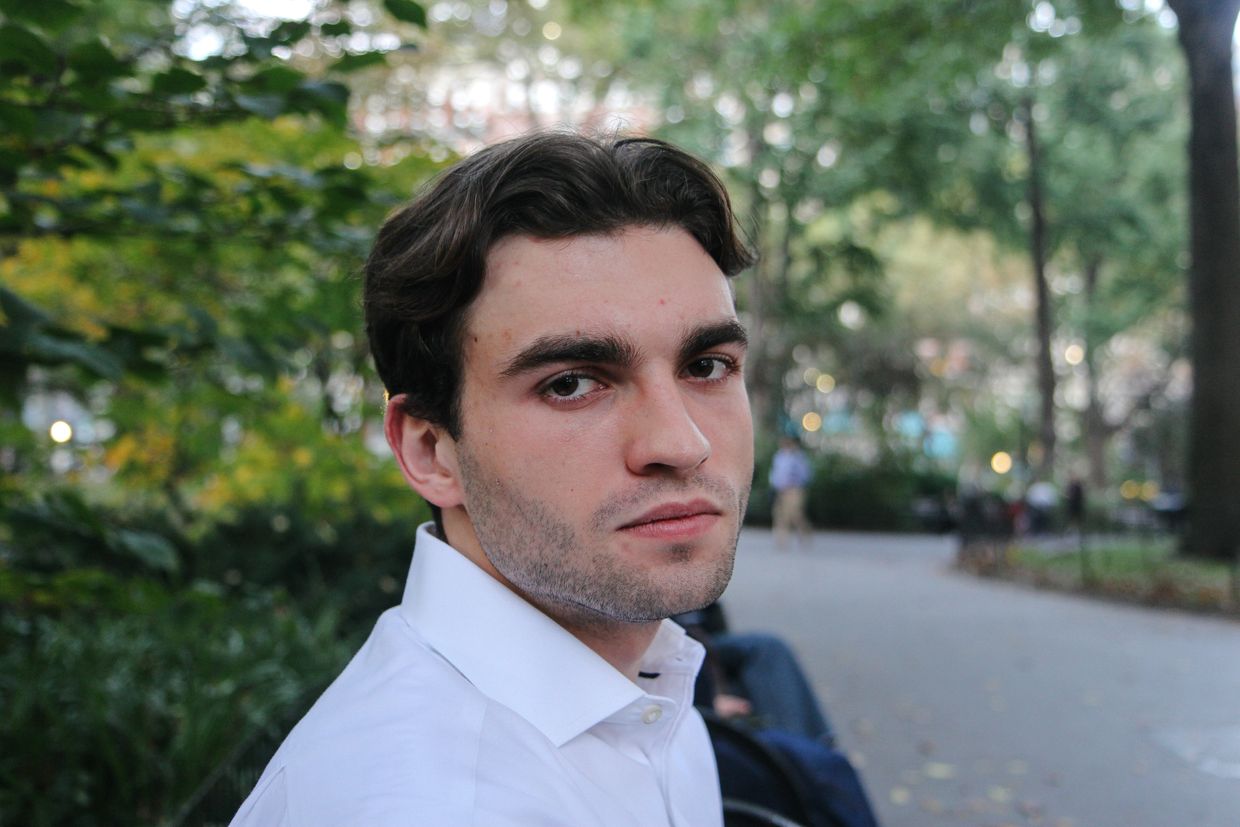

He left Kyiv at 16 years old with a dream to work on Wall Street. Now that most nights are spent wide-eyed in Microsoft Excel for work, he’s questioning when he could go back to Ukraine, if he can.
The stakes are high for this Ukrainian citizen. During the next U.S. presidential administration, he will turn 25, the conscription age for the Ukrainian military, which means if he does return to Ukraine, he would be eligible for the draft.
“I don’t know who I want to win. It’s a very complicated question (for) a Ukrainian citizen … someone who cares for Ukraine, I’d probably have a controversial answer,” Tatus says. “I think Trump might be potentially better for Ukraine than Kamala, which I know doesn’t align with the consensus view on this topic.”
Despite believing that neither Harris nor Trump could end the war immediately, Tatus reserves a touch of hope for Ukraine in Trump's uncertainty.
“Trump is a wild card. I don’t think he himself knows what he’s going to do. I think it’s going to be fully dependent on who he appoints as secretary of state and defense.”
"Trump is a wild card."
“Kamala, in terms of her foreign policy on Ukraine, it will be just an extension of the Biden Administration. We’ll get some aid but barely enough to survive.”
Despite the widespread expectation that Harris will continue Biden’s approach to Ukraine, some view her broader candidacy as too progressive. If it were 2020, Tatus says he’d hands down be a Biden supporter. Like other Ukrainians who can’t vote, his perception of the nominee’s platforms would be less single-issue focused on foreign policy if he was a citizen.
“If I was an American citizen, I wouldn’t be so confident in Trump, it becomes very complicated, it becomes fifty-fifty.”
Elyse Demkiw
Demkiw has spent the last few months selling Ukraine to American investors. The Ukrainian Canadian from Kyiv has worked in Kyiv and New York for a venture capital startup investing in Ukrainian technology.
She wishes she had the citizenship to vote and the time to canvas for Harris. Knowing some Americans won’t vote at all is as infuriating as knowing those who will vote for Trump, Demkiw says.
Once Russia’s full-scale invasion began in early 2022, Demkiw’s once-moral opposition to Trump grew to include foreign policy concerns as she began to see through her venture capital work how American Democrats as a party tended to back Ukraine more than Republicans.
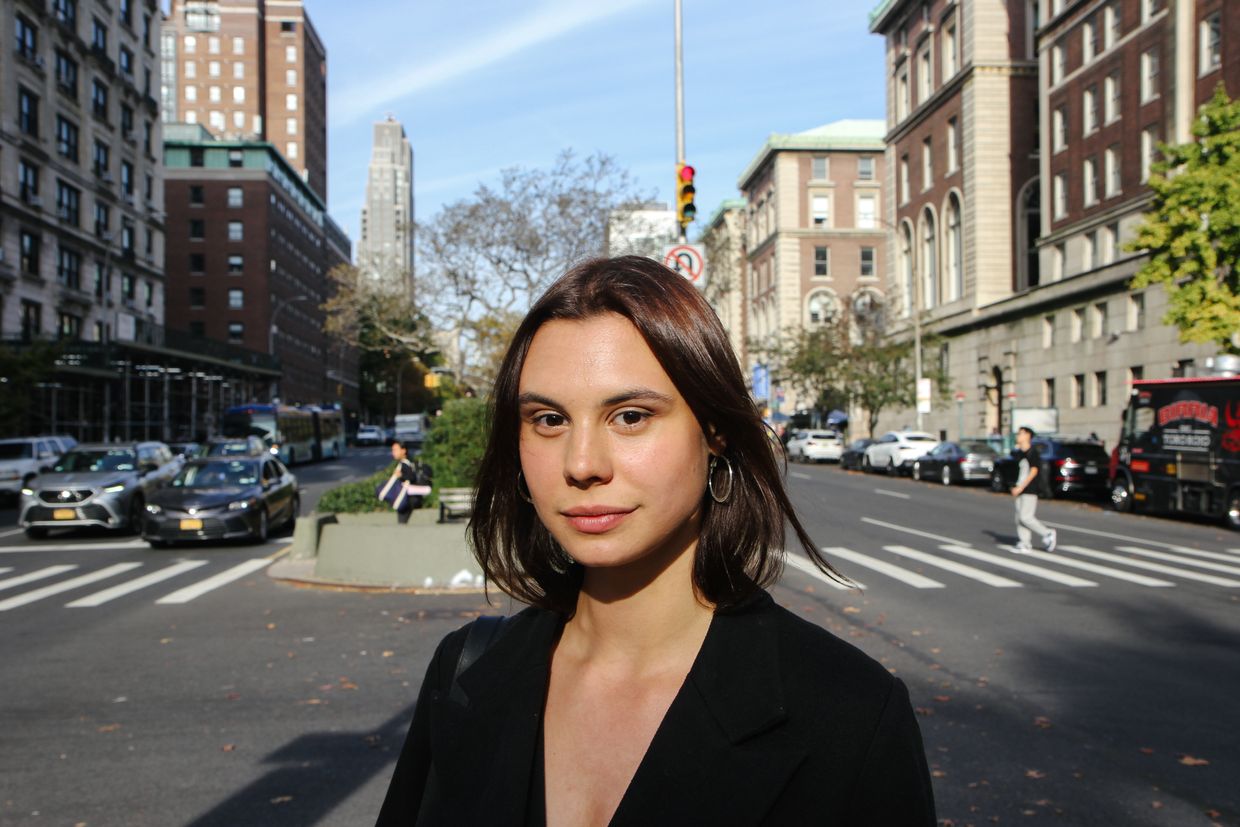

“In terms of Trump versus (Harris) on Ukraine, I think neither one guarantees anything but Trump’s action is worse than (Harris’s) potential inaction,” Demkiw says. “While (Harris) might not be able to convince Congress to pass aid, at least she’ll be open to the idea of Ukrainian victory. Trump had two opportunities to express (interest in Ukrainian victory) during the presidential debate and did not.”
"In terms of Trump versus (Harris) on Ukraine, I think neither one guarantees anything but Trump’s action is worse than (Harris’s) potential inaction."
Although she doesn’t subscribe to the Trump-supporting view of some Ukrainians, Demkiw understands the thinking of many who arrived in America after the fall of the Soviet Union in 1991.
The equation of the Democratic party to communism, the appeal of capitalism, the promise of the American dream, and upward mobility that Trump sells to his base are elements Demkiw says she speaks to some Ukrainians planning to vote for Trump vote on Nov. 5.
“Trump will ride on the victory of wiping America’s hands of the Ukraine war; that’s enough for him, so it’ll be a rapid ceasefire and no extension into NATO.”
“The future of my country lies in this election.”
Introducing official
merch from the Kyiv Independent
const eshopBannerv4Btn = document.getElementById(“snippet__officialMerchV2_button”);
eshopBannerv4Btn.addEventListener(“click”, () => {
window.dataLayer?.push({
event: `InternalLinkClick`,
element_category: “Banner e-shop”,
element_name: “Voloshyn article snippet”,
target_url: “https://store.kyivindependent.com/”,
target_text: “Shop now”,
});
window.open(“https://store.kyivindependent.com/”, “_blank”);
});
Alyssa Lytvynova
Lytvynova is nearly 5,000 miles away from the front lines of Russia’s war in Ukraine, where her partner is serving in the Ukrainian military. Because of this, the New York resident is much more in touch with how decisions in the White House impact Ukraine’s front line.
When Russia first invaded Ukraine’s eastern Donbas region in 2014, Lytvynova fled the steel-producing city of Alchevsk, where she was born. Ten years on, she works for a U.S. media monitoring startup focused on Ukraine that looks at narratives around her home country.
Prior to her relocation to New York in the fall of 2024, Lytvynova says the image of the Democratic party abroad that she was told to expect is one of liberal ‘wokeism’ and anti-family values, none of which have proven to be accurate she says. She’s concerned that some in the right-leaning international media present the Democratic party as somewhat “anti-everything Ukraine stands for right now,” which she says is not true.
“I’m not sure who I would vote for. I don’t think I would vote for Trump, but I’m not sure I would vote for (Harris) either,” says Lytvynova, who does not have citizenship and thus can’t vote.


“But I still think she could do better in explaining what she really means behind those ambiguous ‘let’s not turn back’ phrases,” Lytvynova says, referencing Harris’s campaign phrases similar to “when we fight, we win,” that often serve as reference to Trump-era turmoil or as crowd pleasers.
Lytvynova says a vote for Harris is the choice between two evils.
Too many people are putting trust in Trump’s word that he’ll end the war in Ukraine in a day, she says.
“I don’t think that is the case.”
And if reporting from acclaimed Washington Post journalist Bob Woodward is true that Trump has been speaking with Putin repeatedly, Lytvynova asks why hasn’t he done anything about the war he claims he’ll have immediate authority over.
“Both parties will continue the same approach. They will give some money, and they will fund us a little bit, but they will not give us enough to have a turning point in the war."
Dariia Ordynat
Trump’s unpredictability is terrifying, Ordynat says, but so too is the fear of isolation that a Harris White House could bring to Ukraine.
The 23-year-old public health professional, from Rivne in Ukraine’s west is worried Harris will continue President Biden’s policies toward Ukraine of delaying and limiting aid based on fears of escalation.
Ordynat feels defeated by her inability to vote and frustrated by the reality that not every eligible voter exercises their right to do so. If she could, she’d vote for Harris. The vice president is reasonable and predictable, she says.
“The elections are making me feel uneasy for the future of Ukraine. I believe both presidential candidates have made a lot of promises to Ukraine but haven’t necessarily upheld them in the past,” Ordynat says.
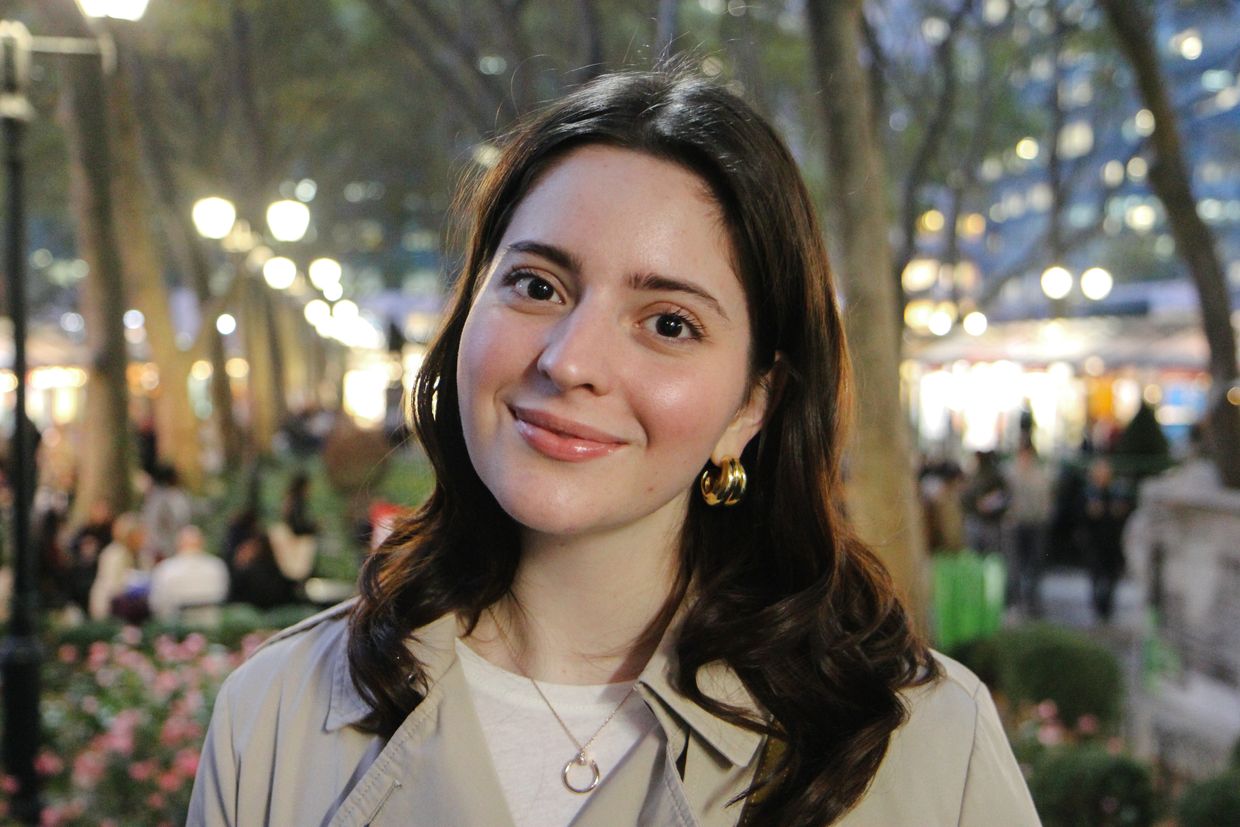

“I would still vote for Harris. However, I’m still a little scared of her candidacy as well because sometimes her approach lacks strength with the situation in Ukraine. We’re just prolonging something inevitable.”
Ordynat says that while Harris has made it obvious she stands with Ukraine, she fears she will continue to give Ukraine only some aid but without taking an aggressive enough approach to end the war.
Despite a distaste for Trump, she’s not surprised that some Ukrainians in the U.S. support Trump.
“They’re conservative in their nature. They tend to overlook how awful Trump might be for (Ukraine).”
